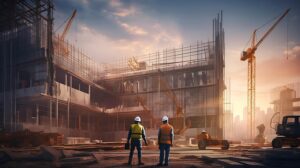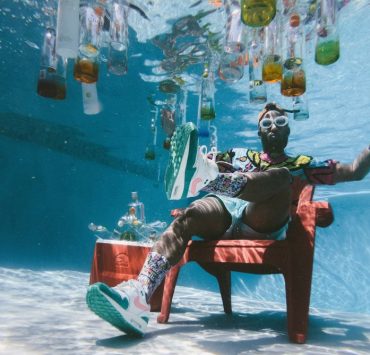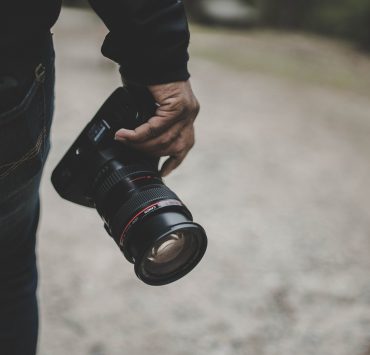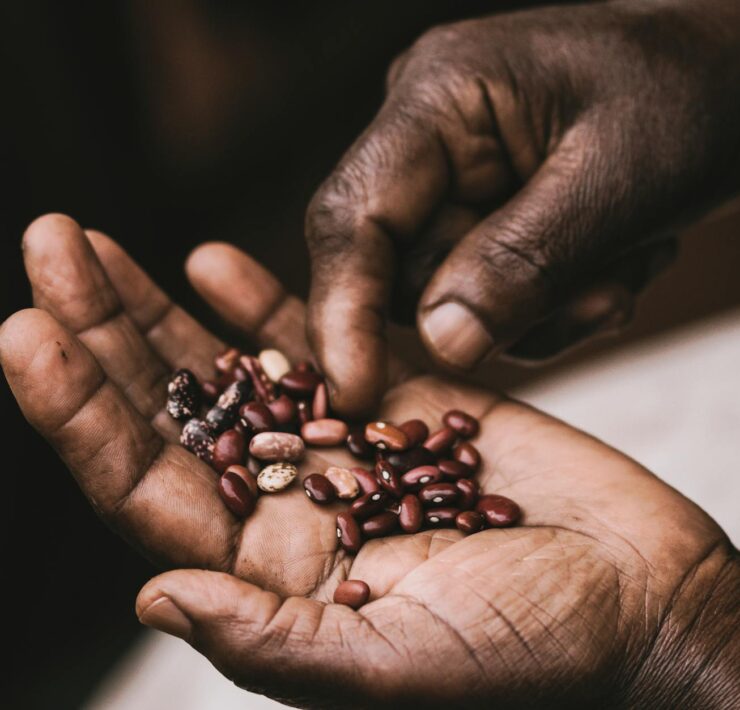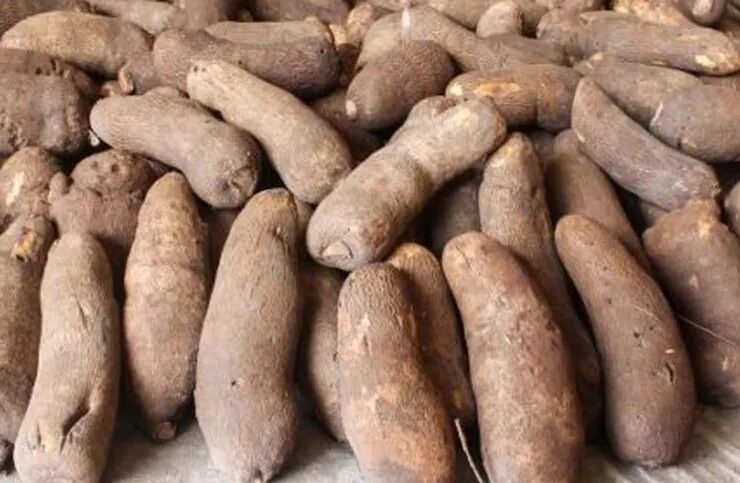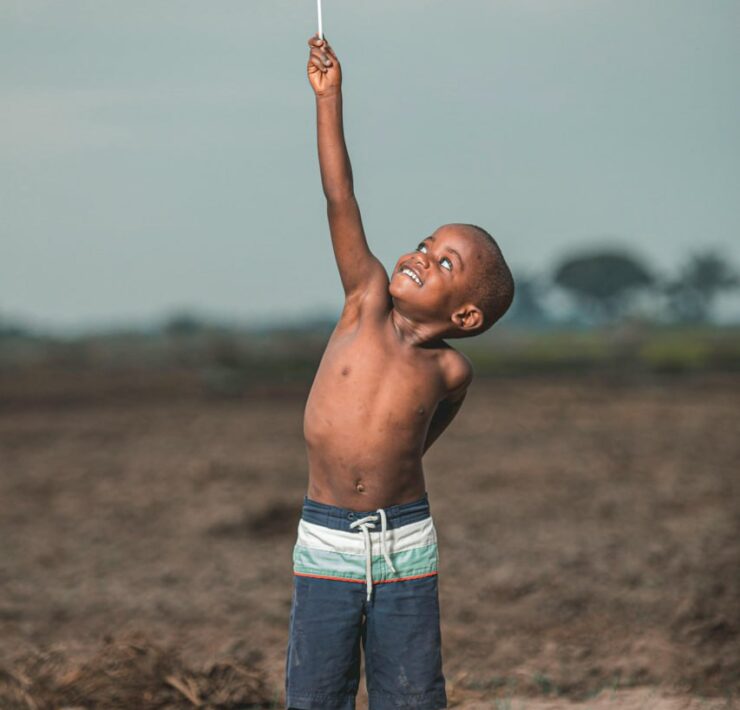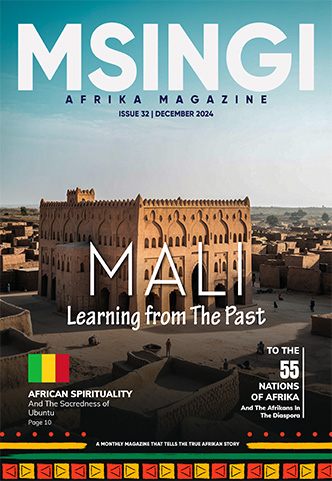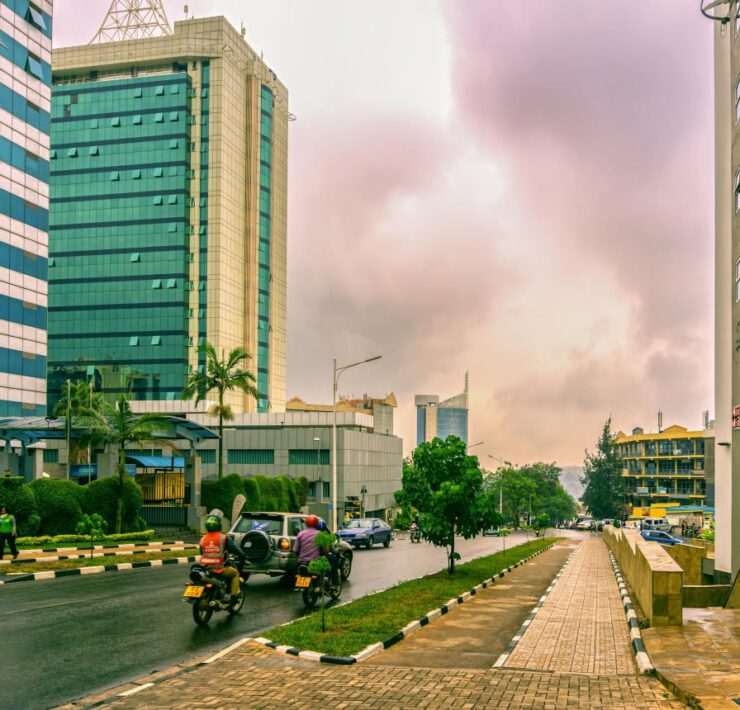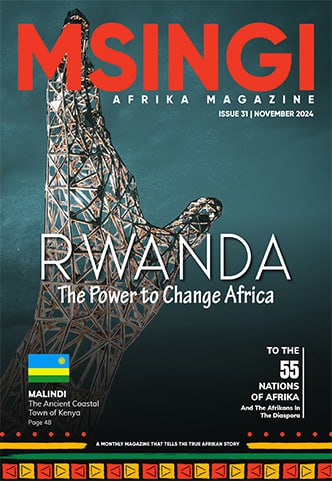Interview: Olisaeloka Okocha
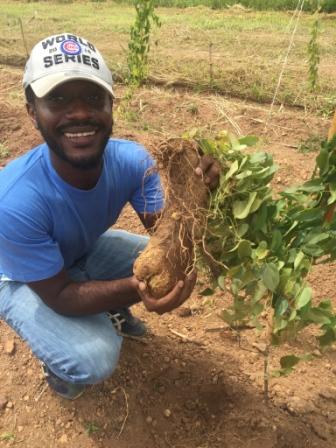
Chioma Phillips is the Editor of Msingi Afrika Magazine and…
Olisaeloka Peter Okocha Jr is originally from Delta. He was raised in Lagos, alongside his brothers, by his Nigerian father and Afrikan American mother. Having completed his primary school studies, he then went to the US to attend high school and university, where he studied economics. During his education abroad, he made frequent visits home during the holidays.
After his first year in university, he had an opportunity to work in Johannesburg when the Black Economic Empowerment initiative was just being implemented by the South Afrikan government, just after Mandela had left office. This proved to be a life-changing experience for the then, 19-year-old who witnessed, firsthand, the imbalances in wealth ownership in the nation. It birthed in him a desire to think of ways solutions for economic empowerment and how to reconnect our brothers and sisters in South Afrika and indeed all over the continent back to the land.
His degree in economics could have led him in the direction of Wall Street but his heart was for Afrika and he decided to come back home aged 22 where he did his NYSC for one year which further entrenched the idea of nation-building in him and his commitment to doing his part to build his community. It also helped deepen his knowledge of the country and to uncover the different opportunities in Nigeria. A year later he traveled to the UK to pursue a Masters’ in Management, then returned home and had an opportunity to work in the shipping sector locally and be exposed as well to the Hong Kong shipping sector for a time.
Upon his return from Hong Kong, he went into full entrepreneurial mode, analyzing critical sectors of the economy to find ways to truly build and grow the nation. This process is what, eventually, led him to agriculture.
He says, “We can’t really begin to develop as a country or a continent if we haven’t obtained food security. Everything in this universe revolves around energy… Food is the fuel which provides us with the energy and power to perform at optimal capacity and function, but if we don’t have enough healthy food that’s to our detriment.” This is what pushed him to enter the agricultural space, to disrupt it positively and ensure the issue of food security, to build a strong nation and continent.
We had a very interesting conversation with Olisaeloka about Afrika:
We find there are a lot of people who go to study abroad and eventually settle there, meaning that a lot of valuable knowledge and resource remains trapped in foreign countries, so it is refreshing to know that you wanted to come back. What prompted that?
There is a brain drain that’s been happening throughout the continent, and I tell friends and colleagues it is deliberate. We have the destabilization that came about as a result of colonization. Essentially, we were set up as extraction points for our natural resource wealth to go to the European countries that colonized us. What you are seeing right now is no different and comes as a result of the fact that we still have systems that are extensions of the colonial era that aren’t to the benefit of us as Afrikans. Now they are taking our human capital potential, our brightest and our best minds are leaving Afrika’s shores and going to these western nations and contributing to building their economies.
You see the amazing things that Afrikans are doing and contributing to nation-building in their adopted nations. We have to find ways to create enabling environments for our brothers and sisters to come back home and do it for themselves and their people.
With the insurgence of the evil called GMOs into Afrika what is the state of Afrika’s agriculture?
My team and I at PS Nutrac are firmly against anything that is genetically modified. Our stance is that we don’t do anything that is in violation of nature. Something we won’t consume ourselves, why would we, in turn, give it to our people? We try and stay, in terms of our farming methods, as organic as possible. We may utilize nutrients in our aeroponics systems but everything we do is non-GMO.
The truth of the matter is that as a continent we have 60% of the world’s arable land as well as water resources. We are really punching far below our weight as a continent and as a people. Afrikans have a natural connection to the land, I tell people, “We know how to farm the land.” It’s an innate gift.
We have created festivals around our agricultural prowess, such as the New Yam Festival, where we celebrated yam and the fertility of the land. We have all this arable land, human capital potential and water resources, how do we channel it to ensure we have food sufficiency and eventually begin to feed the rest of the world? It’s a low-hanging soft power tool that we need to take advantage of as a continent to where the rest of the world will see us as peers.
Is the use of GMOs very widespread in Nigeria?
It is not very widespread. There’s a lot of awareness where people say to me, “Technology is great, but I hope it’s not GMO.” There is a lot of opposition towards the use of GMO, it is not widely adopted and you do find voices that speak up and speak against it.
Across the continent it is not as widespread, this is good, although we do need to improve and enhance upon it. We do have our traditional seed systems to give our farmers access to clean and healthy seeds because that’s where it all starts from and we also need to ensure that other inputs such as access to fertilizer, irrigation and financing the major impediments to agriculture taking off are sorted out.
GMO is not as widespread in use across the continent in comparison to India, where it has been devastating for farmers and you have farmers committing suicide because of the devastation to the land.
We haven’t seen that yet in Afrika nevertheless, it’s important we look at places like India as an example and see the devastation it’s caused and say we can’t allow this, and we build a robust agricultural system to ensure these things don’t come and wreak havoc. We need to open our eyes. We can’t allow external parties to control our food system; whoever controls your food system controls you. If we want independence and sovereignty, we have to begin to take control of our food systems and ensure we are giving our people healthy safe and affordable foods.
We also need to get away from importing.
When you look at importing it is draining our foreign exchange reserves, because we have to convert our local currencies to foreign currencies to import and why are we doing that when we have capacity to farm for ourselves? We really need to reorient our mindset as well.
Tell us about PS Nutrac.
PS Nutrac is a youth-led agricultural company. What we’re primarily doing is utilizing two technologies aeroponics: soil-less agriculture where plants are grown in the air; and hydroponics, where plants are grown in the water. We are using these two technologies to focus on yam. It is a major crop in West and Central Afrika, an Igbo man’s wealth used to be connoted by the size of his yam barn. It has been with us since the beginning, the tuber we found that the Creator gave us that was able to sustain us.

We are part of the Yam Improvement for Income and Food Security in West Afrika, in conjunction with the International Institute of Tropical Agriculture, and we are using these technologies to create a seed system for yam, the first of its kind in the world. The technology allows rapid propagation of yam seeds, which we provide to farmers to grow into the big tubers you see in the market today.
If we can disrupt the seed subsector of the overall yam value chain that will drive down the cost of yam, make it readily available and affordable, provide our clean seed to farmers and enable them to sell all their harvest, instead of keeping part of their harvest for the next cycle.
We can then go into the processing aspect.
We are starting in Nigeria, but the West Afrikan yam belt stretches all the way to Ivory Coast. It is a nutritious crop; it is very healthy and is even used as a fertility treatment, it has anti-carcinogenic properties, is delicious food and is medicinal as well.
It has taken close to 4 years of research and development, working with small scale farmers and encouraging them to plant our seeds and they have all noticed the difference. We have put consideration into the propagation, the taste, whether it changes color when cut, whether it mounds perfectly when pounded and so on. It is very clean, with next to no chemicals and maintains its white color when cut because its natural secretions protect it. The farmers call it a miracle yam and have spread the word to various farmers to the point where it has reached Ghana and farmers there have reached out. We are now ready to scale across the board on a large scale.
The yam value chain is worth close to $13 billion. With inputs such as seeds, it will take it close to $19 billion. It’s a huge opportunity and seeds are just a subsector of the overall value chain. We are currently working on innovative methods for storage and ensuring that with adequate storage we can do proper processing and export as well to countries where you have a huge Diaspora. Yam is also a staple amongst people of Afrikan descent in central and South America, the Caribbean and so on.
Aside from yam, a crop I’m really excited about and see in it the potential to create employment as well as build wealth is hemp, industrial hemp. There’s marijuana, which is psychoactive, and hemp which is not. This is a trillion-dollar crop and we have the land, people and water resources available to grow this thing large scale. It has a plethora of uses: you can use it as a fuel source, it can be processed into supplements, into a protein, into animal feed, into fiber, into building material, CBD oil as well, which can also be used to treat critically ill and clothing. It presents us with so many opportunities for growth.
Is the Nigerian government open to farming hemp?
It’s something they’re starting to pay close attention to; there have been a few governors who have been harping on the economic opportunities that hemp can bring. We are actually in the process as a company; it’s quite a stringent process.
You have to first get approval from the National Drug Law Enforcement Agency, to ensure that it’s not psychoactive. Then we have to get approval from the National Agricultural Seed Council, to say that these are non-psychoactive hemp seeds. It’s taking time, but it’s my sincerest prayer that they realize that if we get on this it’s going to present us with unique and tremendous economic opportunities for growth. There are so many sectors that can benefit: the transport sector, the garment sector, the health sector, the construction sector. Why are we continuing to build with materials which are a violation of our natural environment?
If we begin to use stuff like hemp and natural building materials which enable our buildings to have natural aeration, we will see that our energy costs reduce. It will require individuals across the country to begin to sing the gospel of hemp and the opportunities it presents and once that’s done, I feel that there will be large scale adoption. It’s a crop I’m very excited about.
Whichever Afrikan country embraces hemp as a first mover is going to dominate. We really need to think about that. It’s the easiest crop to manage.
Absolutely. Most importantly we must begin to take care of our natural environment, we have to preserve our natural ecosystems. Why are we cutting down trees when we can grow hemp? It takes three months to grow and cultivate and that can be used as an alternative to paper and all the materials our trees provide us with. This is something we can grow and preserve our trees.
Our trees essentially keep us alive and give us oxygen, clean air. Let’s leave those trees and grow hemp that gives us the same derivatives as trees. So, even from an environmental perspective, it makes sense as well.
We are of the opinion that we need to find a way to share our seeds country-to-country to enhance and sustain the bio-diversity on the continent. Do you think that is possible?
I think it’s a fantastic initiative, I think there has to be a cross-pollination of ideas from across the continent. For instance, I would love to have my yam seeds grown in other parts of the continent because of the nutritional benefits. At the same time, learning this is what this does in Kenya and it’s grown in this part of Kenya, let’s say in Meru, at the foothills of Mt. Kenya – which is a temperate climate – but it does this, this and this and is also very medicinal and okay, in Nigeria I know a similar topography and climate to Meru is Mambila in Taraba, on the border between Nigeria and Cameroon.
Why don’t we go there and plant these seeds and introduce the plant into Nigeria as well, incorporate it as part of our diet?
I think it’s something that’s needed and if initiated I think it will spread continent-wide.
The name of the company is PS Nutraceuticals, because one of my absolute loves is complementary and alternative medicine. We said, let’s start with agriculture first but eventually we will go back and begin to introduce herbal medicine.
It’s another low hanging fruit; it’s something we should take advantage of. Having lived in Asia, I realized it’s a lifestyle.
How do we make it a lifestyle here?
Also, you see a growing trend amongst countries in the western hemisphere where people are starting to look at complementary and alternative medicine deriving from roots and herbs. We are hoping to introduce a product line of herbal products before the end of the year.
I’m planning to make a trip to the rain-forested areas of Afrika, Cameroon, DRC, the Congo River Basin and speak with the people of the rain forest and learn about their plants and have that exchange that this herb and these roots do this and this and that. We have to start cross-pollinating ideas and I think the key to doing that, show our how rain forests are our natural environments and equate to wealth. If you do that you can begin to set aside proceeds to maintaining and restoring that environment. And then begin to share this grows in Kenya; this grows in DRC; this grows in Nigeria and to our benefit.
Do you think that there is any hope for recovering our true organic farming and how do we go about it?
Yes, I think so. For the most part in Nigeria, our farming is subsistence and rainfall led so for the most part, our food tends to be organic. We still have the opportunity to maintain that level of organic farming and continue to build upon it.
Across the continent, in sub-Saharan Afrika, why are the COVID-19 rates not as high as the rest of the world?
Aside from the environment, it comes from the food we are eating. Our food is actually medicine. It’s the oranges we buy on the side of the road, it’s the pineapples, it’s the ugu (fluted pumpkin leaves) and we just need to build upon it.
Is there anything else you would like to share with Afrika?
My message to Afrika in these times of flux that we’re currently seeing right now, the world essentially is shaking and there’s a lot of distraction. It’s important that we Afrikans begin to look within, return to self, remove the proverbial shackles that have been placed on our minds, realize the innate greatness that resides within us and begin to build our continent and engage in enterprise that takes into cognizance natural laws and spiritual laws, that we’re not violating them.
We’re respecting one another and we’re helping to elevate and build one another as well. That, for me, is very important and you will see if we have that focus and commitment towards one another and the continent, we will develop in no time, we will retain the innate greatness that is waiting to be actualized and build a prosperous future.
What's Your Reaction?
Chioma Phillips is the Editor of Msingi Afrika Magazine and the host of Msingi Afrika Television. Her hope is to see the Truth shared, with all who will listen, for the transformation of the people and the continent of Afrika - and the world. She believes passionately in the critical role that Afrika and Afrikans have to play on earth right now and hopes to ignite the spark that will cause them to see and believe who they are, so that they can live out their Truest lives for the remainder of their days.


